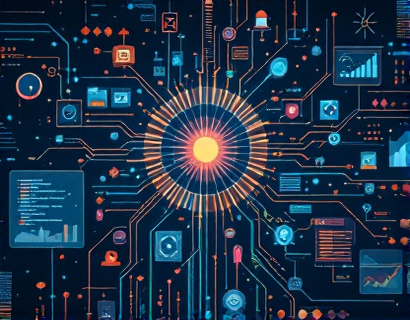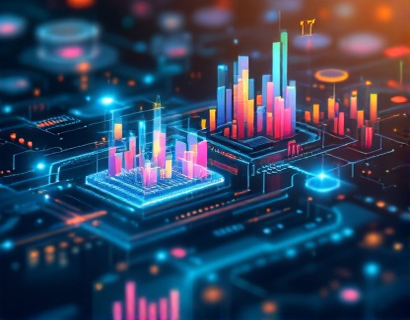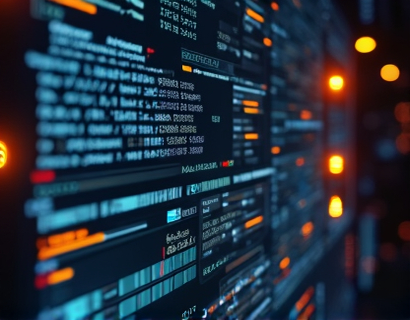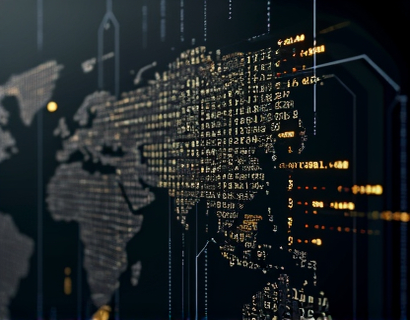Revolutionizing Digital Finance: The Synergy of AI and Crypto
The intersection of artificial intelligence and cryptocurrency is ushering in a new era of digital finance, one that promises unparalleled efficiency, security, and innovation. This transformative synergy is not just a buzzword but a tangible shift in how we perceive and interact with financial systems. As tech enthusiasts and innovators, understanding this convergence is crucial for navigating the future of finance.
The Rise of Cryptocurrency
Cryptocurrency, since its inception with Bitcoin in 2009, has disrupted traditional financial paradigms. It introduced a decentralized, peer-to-peer system that operates independently of central banks and governments. This decentralization is achieved through blockchain technology, a distributed ledger that ensures transparency and security. Cryptocurrencies have grown from a niche interest to a mainstream phenomenon, with thousands of altcoins and widespread adoption in various sectors.
Artificial Intelligence: A Brief Overview
Artificial intelligence, on the other hand, encompasses a range of technologies designed to simulate human intelligence processes. These include learning, reasoning, and self-correction. Machine learning, a subset of AI, uses algorithms to analyze data, learn from it, and make decisions with minimal human intervention. AI has revolutionized industries from healthcare to manufacturing, and its application in finance is no exception.
AI in Cryptocurrency: Enhancing Security and Efficiency
The integration of AI in cryptocurrency has led to significant advancements in security and transaction efficiency. AI algorithms can detect and prevent fraudulent activities by analyzing patterns and anomalies in real-time. For instance, machine learning models can identify suspicious transactions that deviate from normal behavior, thereby reducing the risk of hacking and cyber attacks. This proactive approach to security is vital in a space where transactions are inherently digital and vulnerable to cyber threats.
Moreover, AI enhances the efficiency of cryptocurrency markets. Smart contracts, self-executing contracts with the terms directly written into code, leverage AI to automate and enforce contractual obligations. This reduces the need for intermediaries, speeds up transaction times, and lowers costs. AI-driven trading bots can execute trades based on predefined criteria, capitalizing on market opportunities with speed and precision that human traders often cannot match.
Predictive Analytics in Crypto Trading
One of the most exciting applications of AI in cryptocurrency is predictive analytics. By analyzing vast amounts of historical data, AI models can forecast market trends and price movements with a degree of accuracy that surpasses traditional methods. This predictive power allows traders to make informed decisions, optimizing their investment strategies and potentially increasing returns. However, it's important to note that while AI can provide valuable insights, the crypto market's volatility and unpredictability mean that no model can guarantee success.
Personalized Financial Services
The combination of AI and cryptocurrency is also transforming how financial services are delivered. Personalized recommendations based on individual user data can enhance the user experience. For example, AI can analyze a user's transaction history, risk tolerance, and investment goals to suggest tailored crypto assets and strategies. This level of personalization is not only more efficient but also more engaging, fostering a stronger connection between users and financial services.
Furthermore, AI-powered chatbots and virtual assistants can provide 24/7 customer support, answering queries and guiding users through complex financial processes. This not only improves user satisfaction but also reduces operational costs for service providers. The ability to offer round-the-clock support is particularly valuable in a global market where time zones and language barriers can pose challenges.
Decentralized Finance (DeFi) and AI
Decentralized Finance, or DeFi, is an emerging sector that leverages blockchain technology to create financial systems without traditional intermediaries. AI plays a crucial role in DeFi by optimizing protocols, enhancing security, and improving user experiences. For instance, AI can manage liquidity pools in decentralized exchanges, ensuring optimal price discovery and efficient asset allocation. It can also detect and mitigate risks associated with smart contracts, such as reentrancy attacks, by continuously monitoring and updating the code.
The integration of AI in DeFi also opens up new possibilities for yield farming and automated trading. AI algorithms can identify the most profitable opportunities across various DeFi platforms, executing trades and managing portfolios autonomously. This level of automation not only increases efficiency but also democratizes access to sophisticated financial strategies that were previously only available to institutional investors.
Challenges and Considerations
Despite the numerous benefits, the fusion of AI and cryptocurrency is not without challenges. Regulatory uncertainty remains a significant hurdle, as governments worldwide grapple with how to oversee these innovative technologies. Ensuring compliance while maintaining the decentralized ethos of cryptocurrency is a delicate balance. Additionally, the complexity of AI models can make them opaque, raising concerns about transparency and accountability. It's essential for developers and regulators to work together to establish clear guidelines and standards.
Another consideration is the computational resources required for AI and blockchain technologies. Both are resource-intensive, leading to environmental concerns related to energy consumption. The crypto community is actively exploring more sustainable solutions, such as proof-of-stake consensus mechanisms and green energy sources, to mitigate these impacts.
Future Prospects
The future of AI and cryptocurrency is bright, with numerous potential developments on the horizon. One promising area is the integration of AI with quantum computing, which could revolutionize data processing and cryptography. Quantum computers have the potential to solve complex problems that are currently infeasible for classical computers, enhancing the security and efficiency of blockchain networks. This synergy could lead to breakthroughs in areas such as secure voting systems, supply chain management, and identity verification.
Moreover, the rise of central bank digital currencies (CBDCs) presents an opportunity for AI to play a pivotal role in central banking. AI can help central banks design and implement CBDCs that are secure, efficient, and inclusive. By leveraging AI for data analysis and risk management, central banks can make more informed decisions, improving the overall stability and accessibility of the financial system.
Conclusion
The convergence of AI and cryptocurrency is redefining digital finance, offering innovative solutions that enhance security, efficiency, and personalization. As tech enthusiasts and innovators, embracing this synergy is essential for staying ahead in the rapidly evolving financial landscape. While challenges exist, the potential benefits are immense, paving the way for a more decentralized, intelligent, and inclusive financial future.










































